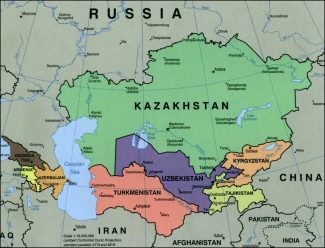Summary
Despite its history of jihadist activity and having endured a string of deadly attacks in the early 2000s, Indonesia has largely avoided the perils of Islamist terrorism over the past decade. The world’s most populous Muslim-majority nation has escaped relatively unscathed since ISIS burst onto the scene three years ago.
Yet as ISIS gradually redirects its focus toward Southeast Asia amid mounting territorial losses in the Middle East, the risk of a resurgence in Islamist terror in Indonesia has become increasingly real. Whilst ISIS may prove to be the catalyst for a renewed wave of terrorist violence in the country, signs of increased jihadist activity have been present in Indonesia for a number of years. There has been a shift toward the wider acceptance of radical ideology at all levels of society, as radicalization has crept into schools, prisons, and mosques.
These trends have coincided with a spike in recruitment for home-grown militant groups such as Jemaah Islamiyah (JI) and its ISIS-affiliated offshoots, whilst the number of advanced plots disrupted by counter-terror police has steadily risen in recent years. All of this points to a resurgence in the threat posed by Islamist terror. At present, the threat is higher than any other point since the turn of the century, when groups such as JI possessed an ability to launch mass-casualty attacks against civilian targets.
This report tracks the history of Islamist terrorism in Indonesia and examines why jihadist activity is once again on the rise. It then asks the question that the future of Indonesian security hinges on: Is Jakarta ready to confront the threat?
Background
Indonesia’s history of terrorism and radical Islam is associated above all with a single group, Jemaah Islamiyah (JI), which gained a notorious reputation for launching high-profile attacks against civilians. The group’s beginnings date back to the late 1980s when two Yemeni-born Indonesian clerics – Abdullah Sungkar and Abu Bakar Ba’asyir – fled to Malaysia and began mobilizing regional jihadists to travel to Afghanistan and join the fight against Soviet forces. The two men had earlier been members of the Darul Islam (DI) movement – often considered the ideological pre-cursor to JI – which had fought for the creation of an independent Islamic state in West Java during the 1960s and 1970s. By 1993, Sungkar and Ba’asyir had formed JI in Malaysia, aided by financial support from al-Qaeda and drawing upon the combat skills of Southeast Asian militants returning from Afghanistan.




